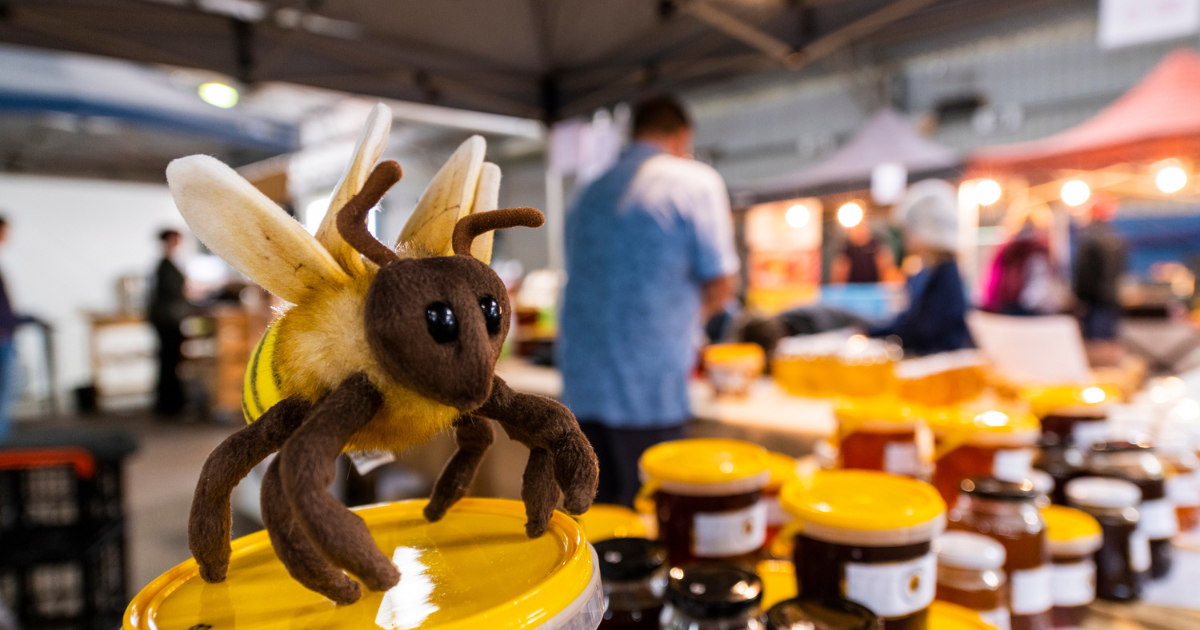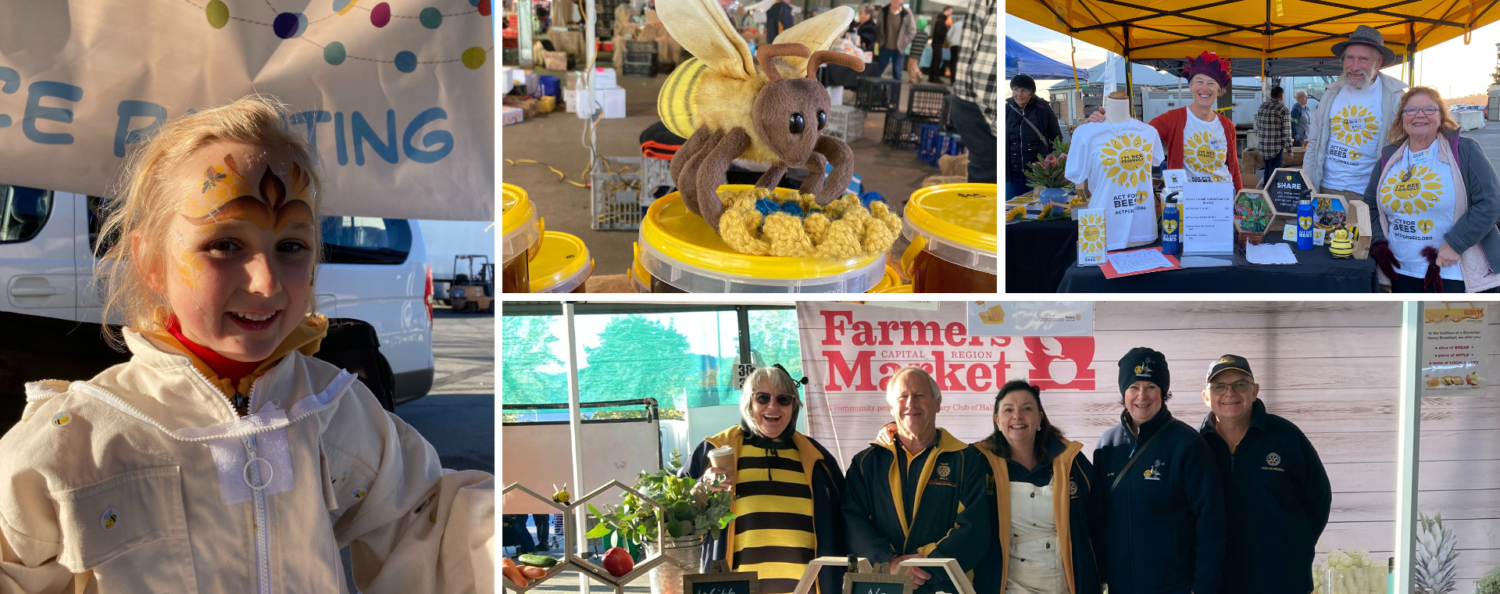World Bee Day
- Home
- World Bee Day


We Need Bees
Join us to celebrate World Bee Day at Capital Region Farmers Market
Saturday 18th May 2024
We all need to contribute to the survival of our glorious bees, and the very important role they play in our food supply.
At the Market, most of our stallholders depend on bees and other pollinating insects to survive. And so together we recognise the importance of World Bee Day to raise awareness of the importance of bees and beekeeping to the world.
On Saturday 18th May 2024, we invite you to join us for a family fun day to promote the importance of bees for the supply of our food.
The Market will also be hosting a hive of events on the day including:
- See our bee display, beekeepers and honey
- Find bee-friendly plants for your garden
- Discover exclusive Bee Themed food
- Sample a Traditional Slovenian Honey Breakfast.
Swarm to the hive this coming Saturday 18th May 2024, 7am–11.30am.
All the Bee-tails:
What: World Bee Day at Capital Region Farmers Market
When: Saturday 18th May 2024, 7am–11:30am
Where: Capital Region Farmers Market at Exhibition Park in Canberra (EPIC)
Website: For more information, visit capitalregionfarmersmarket.com.au.
Bees: Fast Facts.
Bees play an important role in pollinating native plants in our Australian ecosystem. The vast majority of global pollinators are wild including over 20,000 species of bees.
Australia is home to around 2,000 species of native bees, the majority of which are solitary bees.
European Honeybees are social insects that were introduced to pollinate many of the introduced food crops that now form part of a normal Australian diet.
Beekeepers migrate their bees to produce honey from diverse flowering events and perform essential pollination services to safeguard our food, fibre, forests and fodder crops.
Bees are keystone species, playing a vital role as pollinators.
Did You Know?
Global population forecasts predict that we will have close to one third more people in the next 30 years. To feed this growing population and secure the well-being of humankind, we need to ensure food is available, accessible, diverse, balanced and of good quality.
Pollination is crucial to achieving food security as three out of four crops across the globe producing fruits or seeds for human consumptions as food depend, at least in part, on pollinators. Pollinators affect 35 percent of global agricultural land, supporting the production of 87 of the leading food crops worldwide.
On 20 December 2017, following three years of efforts at the international level, the UN Member States unanimously approved a proposal by Slovenia to proclaim 20 May as World Bee Day. Slovenia is a nation of beekeepers, and beekeeping enjoys a status equal to that of other types of agricultural activity. The significance of bees and ensuring their well-being is well understood.118


